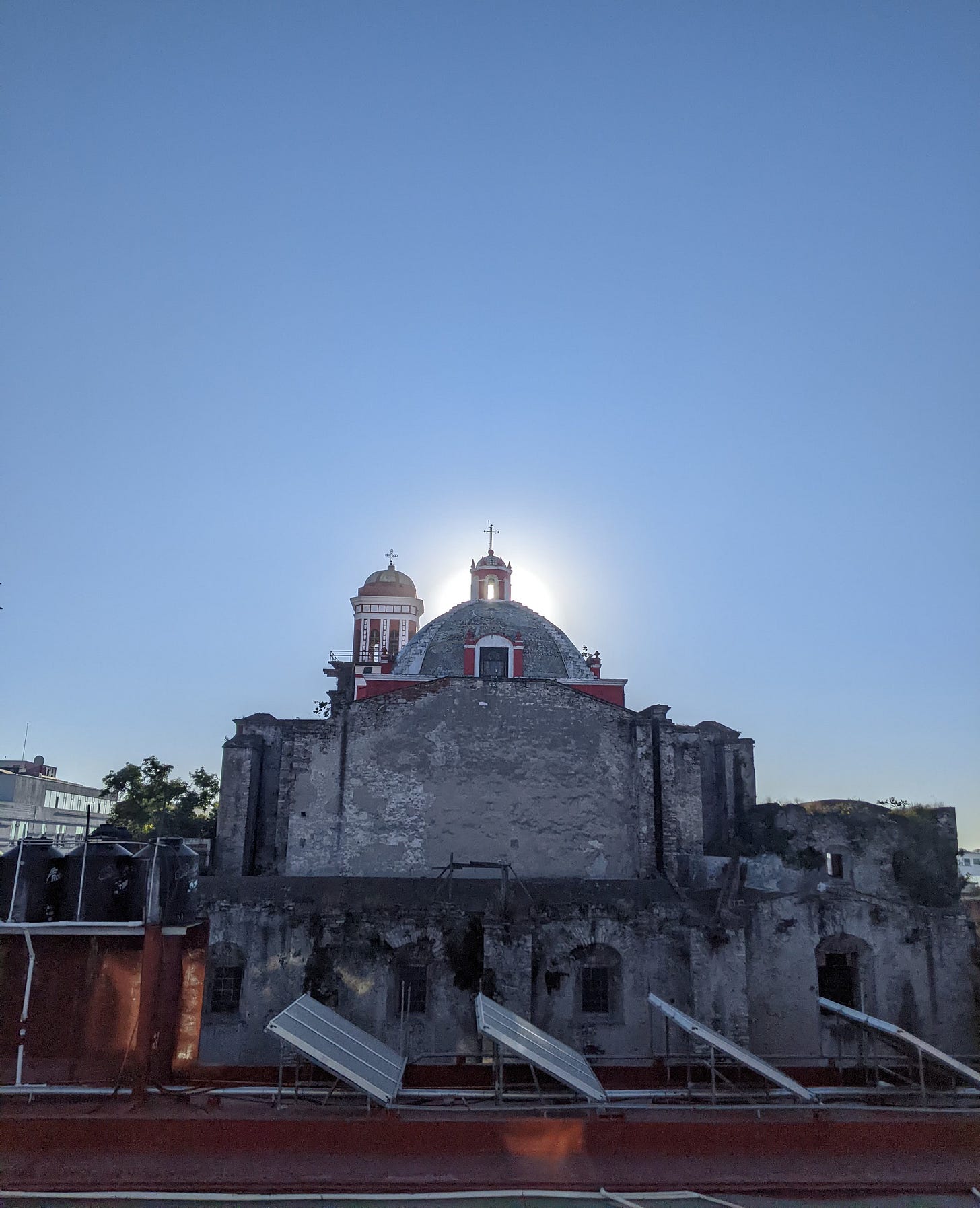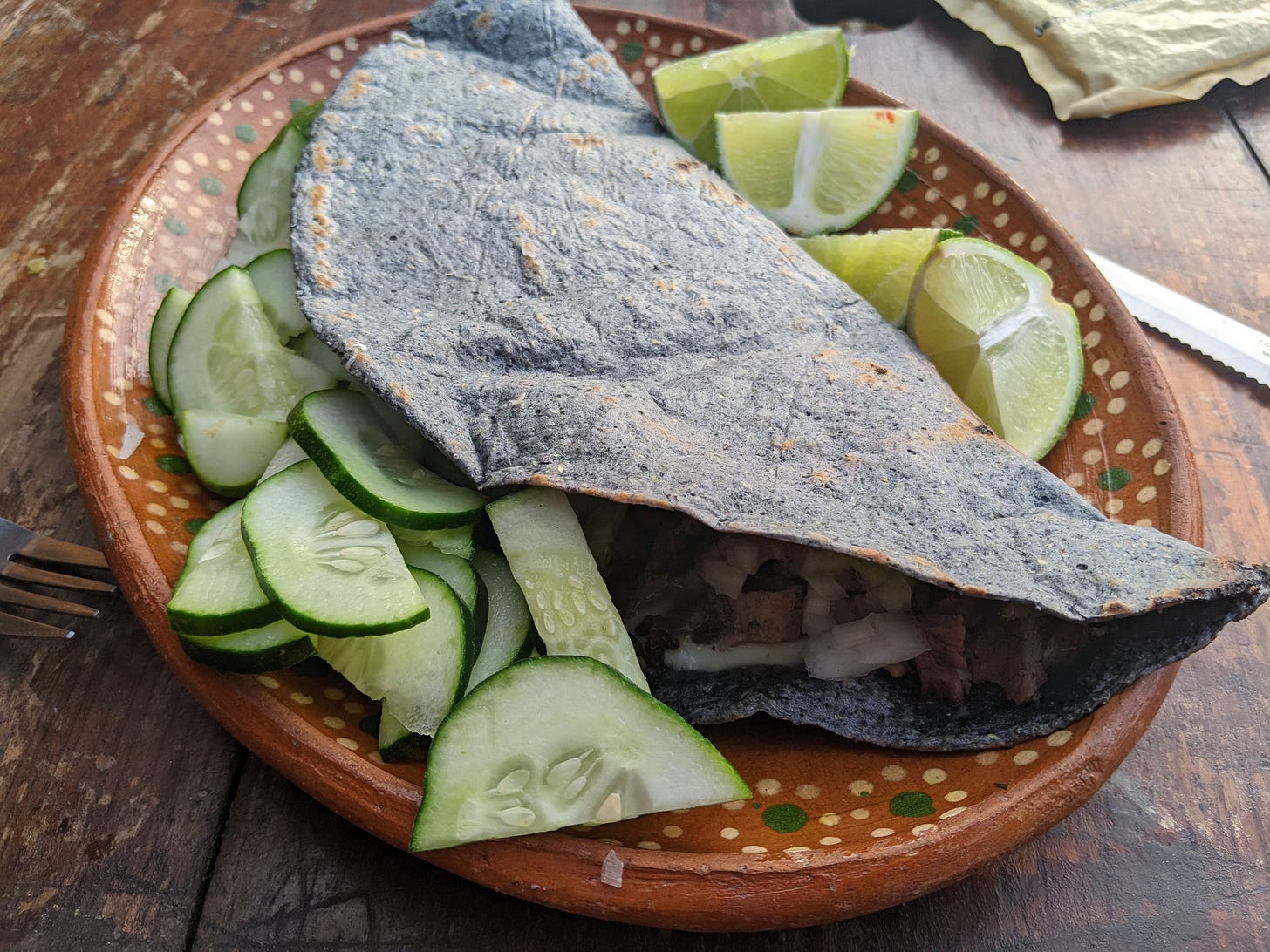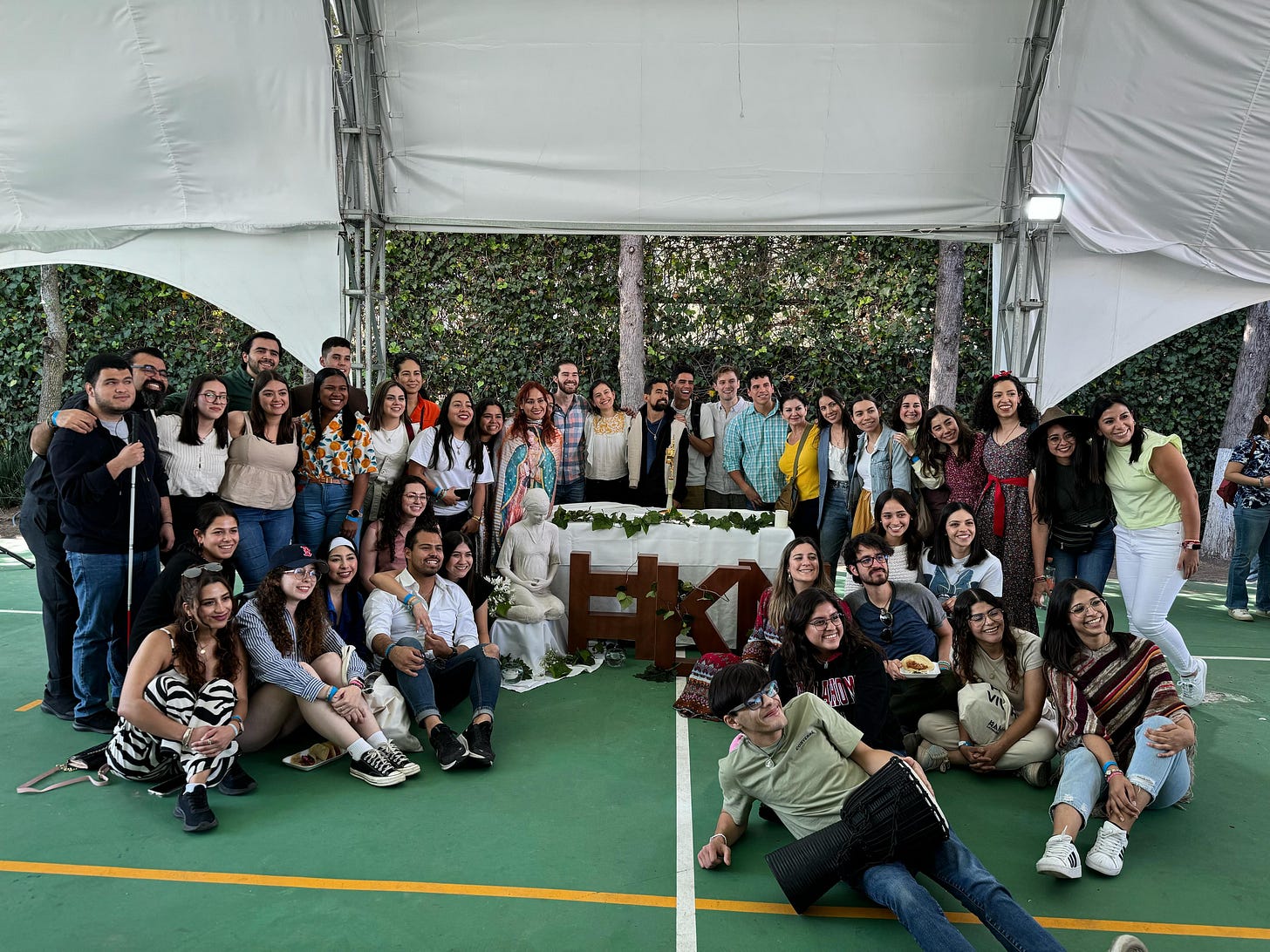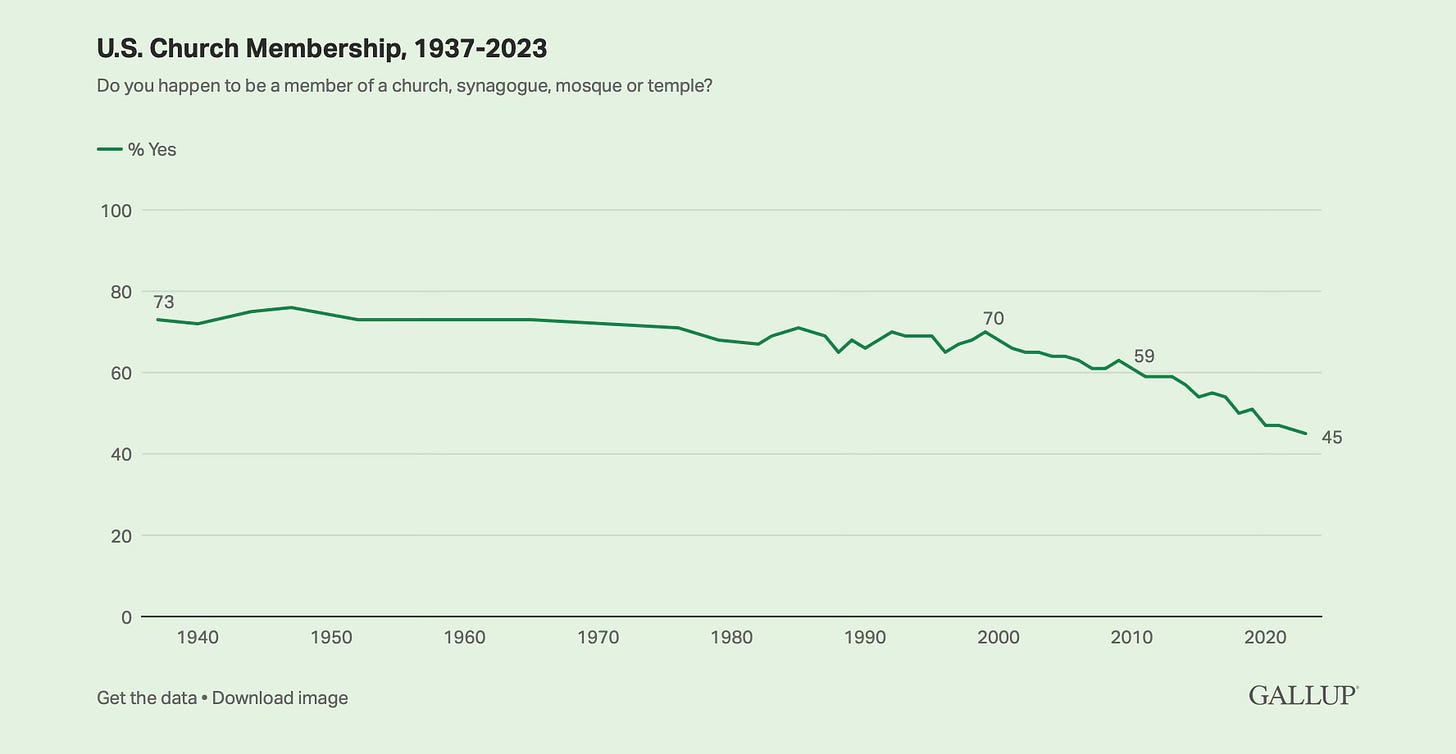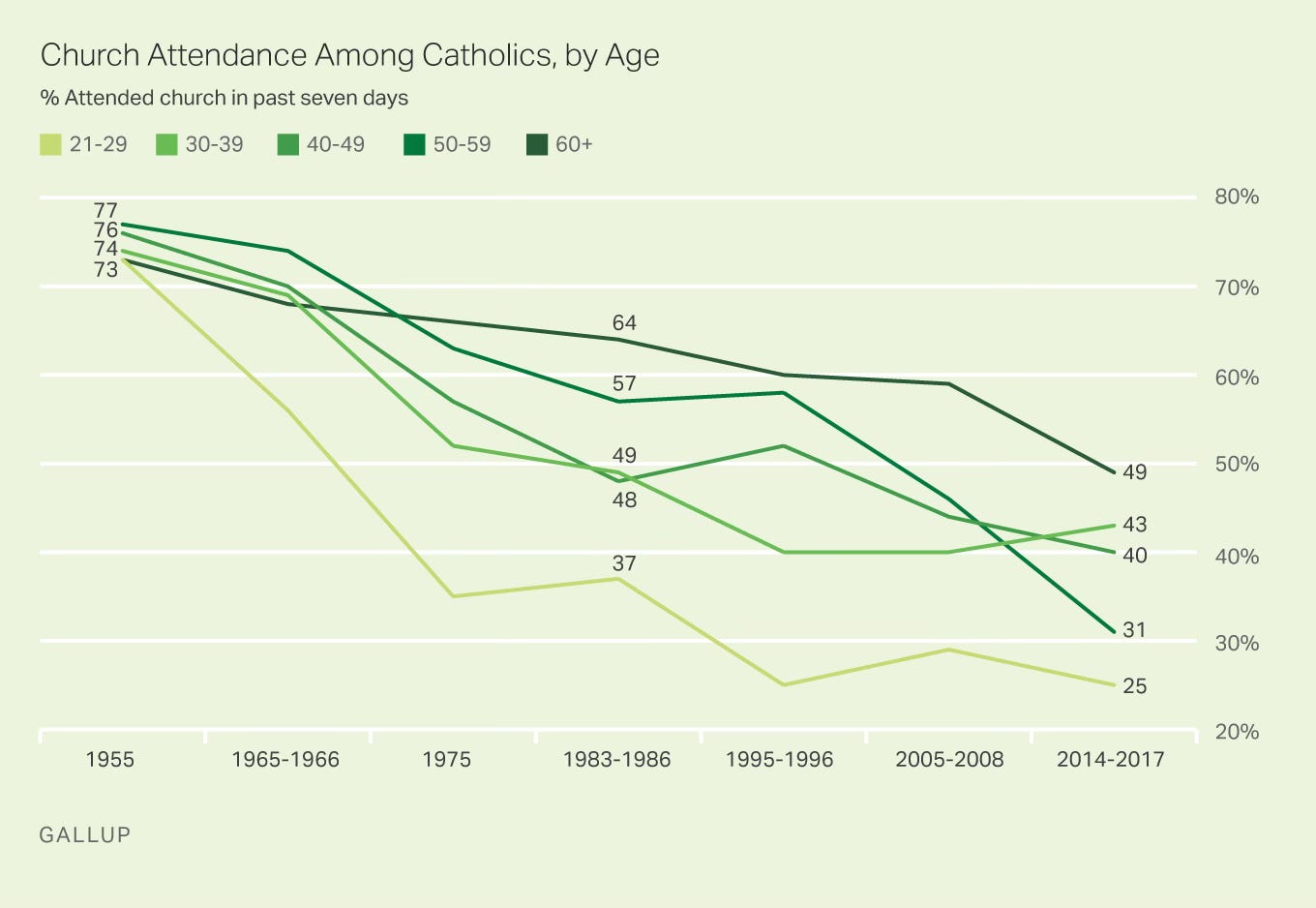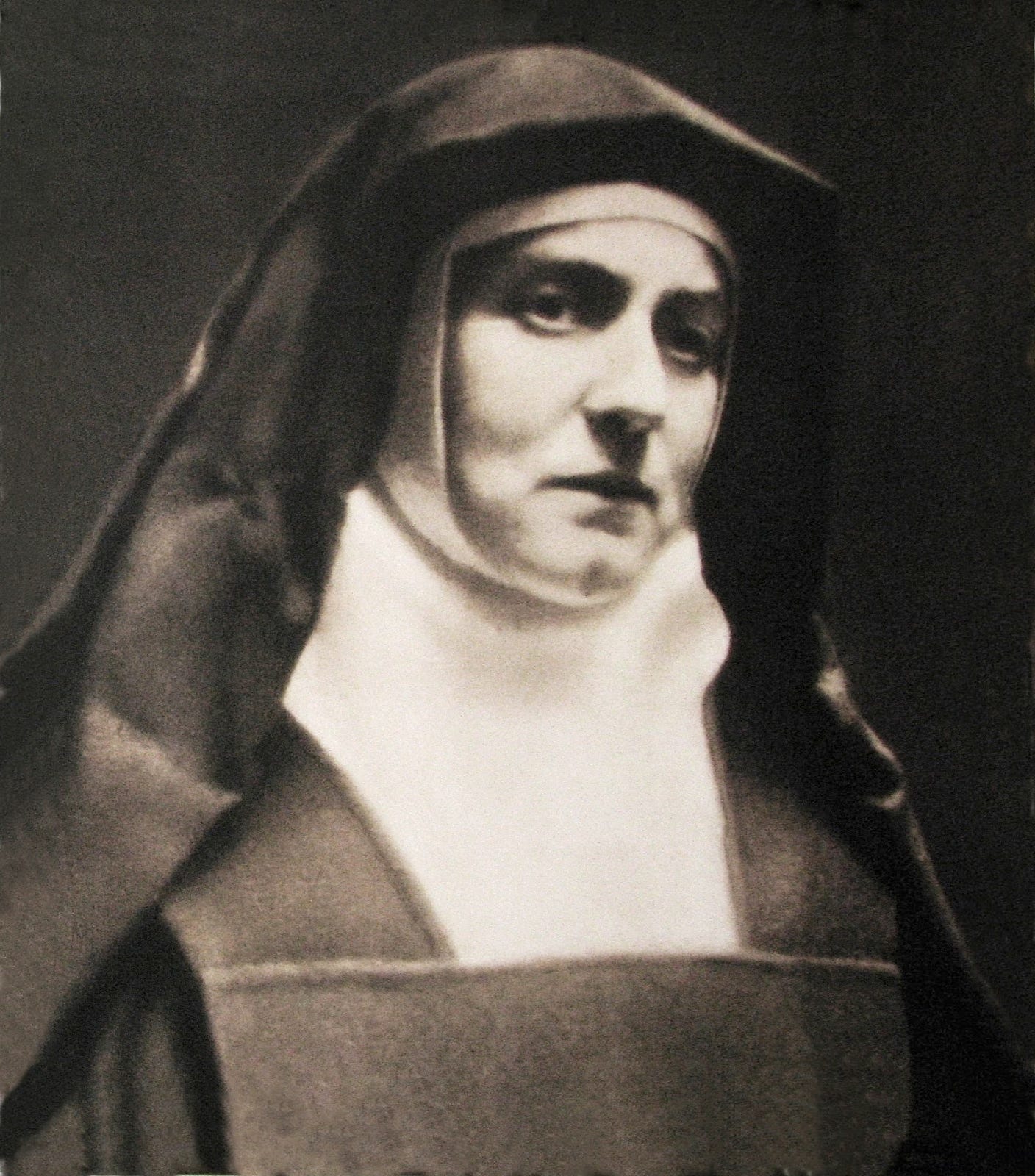Have we been psyop'd out of church?
Discovering Bitcoin in 2020 opened my eyes to the lies about money, food, and… well, you know. It was a fun 18 months watching lie after lie fall, death by Bitcoin lens interrogation. But then I met my Mexican Catholic future ex, and I had no idea what she was talking about. And she sure was using the word truth a lot.
How was this possible? I loved truth.
Context to catch up:
I moved from Toronto to a beach town in Mexico October 2021.
I met a girl at a salsa class the second day there.
She studied theology and taught catechism class.
I had been reading about Christ on Bitcoin Twitter for a month and decided to go to church upon arriving.
We dated for six months.
Those six months I was following a collection of Christian Bitcoiner takes. But the example of my girlfriend and our friends and her family, formed by the culture of Puebla, was compelling. And my understanding conflicted with how they lived.
Puebla’s original name was Puebla de los Ángeles—literally, City of Angels. It was presented to me as the most Catholic place in all of Mexico, with the highest density of churches in the country.
At first, I resisted the idea that this dissonance was a problem. I had uncovered so many fiat deceptions, so therefore I had a solid grasp on reality, so surely not understanding faith right away meant I was cool. But the more I thought about it, the more it bothered me.
My girlfriend became my unexpected mentor on this journey. As I helped her family buy bitcoin, she assured me that my relentless pursuit of truth would eventually lead me to her same faith. I was concerned that our disagreements were a problem for our relationship. I was attending Evangelical- and Baptist-led Bible studies online, holding off from receiving Communion at Mass, and clearly not as catechized as her. But no, she believed it—eventually I’d make it to Catholicism.
I didn’t believe her, but the message resonated, planting a seed of curiosity.
Can she predict my life like that?
I began to dig deeper. Weekly Bible studies. Podcasts. Conversations. I found myself questioning everything I thought I knew about God. I began to disagree with my atheist Bitcoiner friends attending the Bible studies. But we still debated, discussed, and challenged each other’s perspectives. It was a challenging and sometimes uncomfortable process, but we were all there to uncover the truth, and I would go wherever it led me.
A year into this mixed with many more humbling moments, I committed to the Catholic Church, as my now ex-girlfriend predicted. (We split mutually and amicably.) I met new Catholic friends when I moved to Guadalajara, then absorbed into a parish community in Toronto when I returned in 2023.
Life’s been great, but there’s a newfound pain: my family, friends, and Bitcoiner brothers and sisters don’t share the most important part of my worldview now. Which brings me to this chart:
This chart’s not on WTF Happened in 1971. Neither is this one:
And neither is this one:
This one’s about me. I was baptized in the 90s, confirmed in the 2000s, and fell away in the 2010s. I watched my friends and family do the same.
Church again, with knowledge, has made life WAY better. It’s almost a joke how much more life my family has now.
This experience plus my data-based intuition forced me to confront another embarrassing truth: my aversion to religion was just another form of “fiat” living. A blind acceptance of the atheist agnostic status quo. “Nothing’s happening at church.” “It does nothing for me.” “It’s boring.” Etc. It was a difficult realization, but it opened my eyes to the fact that I am still a product of a fiat culture in big ways.
A special Bitcoiner one: “The people there are fiat.”
I also realized that my insatiable hunger for truth is not just a personality quirk; it’s a blessing, a divine nudge towards uncovering the many layers of deception that permeate our world. This includes spirituality. And identity—who we are as Bitcoiners and what we are meant to do.
Edith Stein once said that anyone who honestly and passionate searches for truth is on the way to Christ. Us Bitcoiners are the people that the Beatitude speaks of. This thirst and hunger is blessed because it leads men to God, to Christ, and therefore opens the world to the Kingdom of God. With this understanding, I began to see both as interconnected paths towards uncovering truth and living a more authentic life.
I feel renewed and have a deeper understanding of our purpose. Our Bitcoin lens is more than just a tool for supporting our families and fixing the material world; it’s a reminder that we’ve been blessed with a responsibility to guide our communities in lives of integrity, truth, and yes, spiritual fulfillment.
Now, I share this, hoping to inspire to keep questioning and not assume victory. Your Bitcoin experience has taught you that by embracing your curiosity and challenging the status quo, you can break free from the chains of manipulation and create a better world for ourselves and future generations.
So to answer this post’s question for yourself, I recommend the path I followed: Go to a church. Every week. Engage with people that do. Your relentless pursuit of truth, goodness, and beauty will lead you where God wants you, and it will give you what you need to lead your community.
Because we need you as least fiat as possible for what’s next.
Galatians, CHAPTER 5
Be Not Misled.
7 You were running well; who hindered you from following [the] truth?
8 That enticement does not come from the one who called you.
Freedom for Service.
13 For you were called for freedom, brothers. But do not use this freedom as an opportunity for the flesh; rather, serve one another through love.
14 For the whole law is fulfilled in one statement, namely, “You shall love your neighbor as yourself.”


